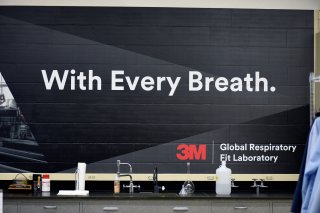Here Come the Coronavirus Scammers
In a Department of Justice memo obtained by Politico, Deputy Attorney General Jeffrey Rosen informed law enforcement agency chief’s and U.S. attorney’s about the list of new crimes the department was observing or planning on prosecuting, that were related in some way to the coronavirus.
Like Dominos dropping one after another, each successive crisis of 2020 has led to the other. The coronavirus pandemic, with its exponential rates of infection, directly caused the mandatory closing of businesses across the United States. This triggered a financial panic which is manifesting itself into what could be a new economic depression. These combined crises, ushering in a new era of desperation and opportunity, are contributing to a rise in scams and other criminal activities that have acquired the attention of law enforcement.
In a Department of Justice memo obtained by Politico, Deputy Attorney General Jeffrey Rosen informed law enforcement agency chief’s and U.S. attorney’s about the list of new crimes the department was observing or planning on prosecuting, that were related in some way to the coronavirus.
“Capitalizing on this crisis to reap illicit profits or otherwise preying on Americans is reprehensible and will not be tolerated,” Rosen said, prior to listing some of the scams he was referring to. These include the typical robocalls people receive which now include offers to deliver respirator masks, fake apps that purport to provide valuable information on the virus but instead install malware, and prescription drug schemes. A prominent one is the age-old snake oil salesman, now attempting to sell fake testing kits, “immunity” pills, and other cures for the coronavirus.
This spike in swindlers, and the expected rise of more violent crime, has led to a surge of gun and ammunition purchases among Americans.
One paragraph makes clear that the disease could be used as a weapon or invoked as a threat. “Because coronavirus appears to meet the statutory definition of a ‘biological agent’…such acts potentially could implicate the Nation’s terrorism-related statues…Threats or attempts to use COVID-19 [coronavirus] as a weapon against Americans will not be tolerated,” the memo reads. It’s unknown at this point whether these are real threats that have occurred or precautionary warnings about what might happen.
The memo also makes clear that the Justice Department is taking the hoarding of masks and other medical goods as a serious offense. “Individuals or businesses may be accumulating medical supplies or devices beyond what they reasonably need on a daily basis, or for the purpose of selling them in excess of prevailing market prices,” it warns.
To be a crime, these “medical supplies or devices” would have to be designated by the Secretary of Health and Human Services as scarce. HHS has not taken this action yet, but the DOJ is currently coordinating with them to gain appropriate authorization.
“Conspiracies between individuals or businesses to fix prices, rig bids, or allocate markets with respect to COVID-19 materials are prosecuted criminally under the federal antitrust laws…And when the United States is injured as a result of those practices, the government may bring suit to recover its damages,” the memo explains.
Hunter DeRensis is the senior reporter for the National Interest. Follow him on Twitter @HunterDeRensis.

